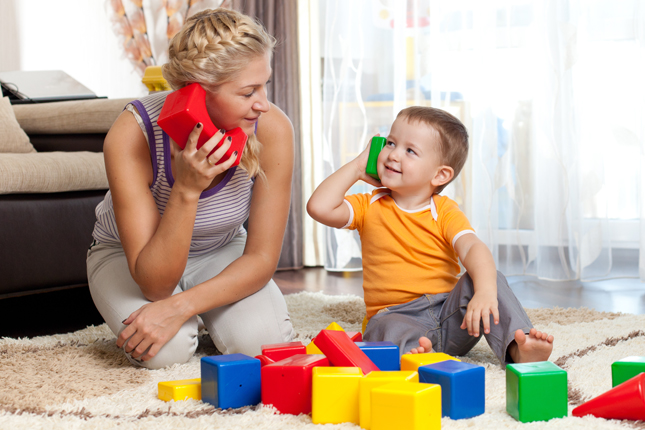Parent Savers
Babysitting Dos and Don’ts
Jodi Sornborger: Whether you’re headed out for a night on the town, or just need some help getting errands done without the kids attached to you, hiring a babysitter can be a great benefit to you and your family. But what are some of the things you should look for when hiring a babysitter? And what is the proper etiquette regarding payment, meals, and more? I’m Jodi Sornborger, from UrbanSitter.com, and today we’ll be talking to you about all of these things and more on Parent Savers, Episode 46-All about Babysitting.
[Intro]
Johner Riehl: Welcome to Parent Savers broadcasting from the Birth Education Center of San Diego. I’m Johner Riehl, and as your host, I’m here to have conversations about subjects that parents of new and new again kids care about. On Parent Savers, we engage with experts in the field as well as parent panelists just like you. But we have room for you to be a part of the show; so give us a tweet, call our hotline, leave a comment on our Facebook page, vote in a poll, send us an e-mail, release some carrier pigeons-do whatever it takes to get you in touch with us to help get your questions answered and comments heard, because we love you participating in the show. But in addition to listening, make sure to visit the Parent Savers website for more information about the topics we discuss; and while you’re there, make sure to sign up for our free newsletters so you can stay up to date. And don’t forget, we have a Parent Savers Club where you can download the archived episodes and get exclusive content and more. Make sure to visit https://www.parentsavers.com for more information. As a little bit about myself: I’m a new-again parent. My son Zyler is a one and a half-year-old, and I also have two other boys, four and six, and I’m joined by a couple of other new parents in the studio as well.
Ursula McDonald: Hi, I’m Ursula McDonald, and I’m thirty-five; I am a part time office manager now and full time mom to my two boys, Desmond who’s four and Callan who is two.
Sunny Gault: Ooh! I like their names. [Laughs] Hi everyone! I’m Sunny Gault, I am actually the host of our sister show Preggie Pals, which is all about pregnancy. I have two little boys as well, and it looks like this is the “Boys Club” today- [Laughter] Right? So my little boy Sayer, he is two and a half years old; and Urban is-let’s see, how old is he now-ten months old.
[Music]
Johner Riehl: Before we dive into today’s topic, let’s talk about one of the news headlines. And today’s new headline is “Man Sues Parents for Failing to Love Him Enough.” A homeless Brooklyn, New York man is suing his mother and father because he claims the reason he’s in his predicament is because his parents haven’t supported or loved him enough. The thirty-two year old, named Bernard Bay, claims his parents lack of parenting skills have denied him the opportunity to live up to his full potential. He told the New York Radio Station, “I don’t feel like my parents love me. They aren’t supportive. They’re emotionally abusive, verbally abusive; we don’t have a family bond that a family should have.” And so that I guess is why he’s homeless. [Laughter] So what do you guys think? Do you think that the parenting decisions from young-do you think he has a case? Number one-and two, but is there something to what he’s saying that maybe the parents should have done?
Jodi Sornborger: I don’t think so. I-my parents were awesome growing up-but my best friend came up from what this guy’s describing, and she is on full scholarship at Berkley in the Hass Business School, and is graduating with three job offers at the top five accounting firms. So I think life is what you make of it, and unfortunately a lot of people are in the same situation as this guy, but you’ve got to just suck it up and go on with life.
Sunny Gault: Yeah, I mean, yeah. I, too, came up from a home where my parents are very loving and their supportive of me, I think they’re my biggest cheerleaders. But I think this kind of comes from this whole idea of me. It’s me, me, me, me, me: everything needs to be given to me. And it’s like you said, Jodi, there are people that come from nothing; I mean our president came from nothing, you know what I mean? And look what he’s been able to do with his life? And there’s so many stories out there like that that I don’t think we can just blame it on one thing, we have to start taking responsibility for our actions-and yeah, we can be set up a little bit differently, but that doesn’t mean you can’t succeed in life. So, I don’t think he has a case.
Ursula McDonald: Yeah, I think that it’ll be interesting to see. I don’t think he has much of a case. But what it gets me thinking about is you know, how easy it can be to sometimes become a parent and have children but not necessarily everybody should have children. And so, you know, you have to get a driving test to get your driver’s license, and study and prove yourself. And, you know, just because of human nature, anybody can have children, and that makes me a little sad whenever I hear of children that aren’t being loved and taken care of, you know? But I also agree-my grandfather came from a terrible upbringing and had no shoes-and nothing-but he got scholarships and became a doctor- so you know, there has to be personal accountability, too.
Johner Riehl: So I guess where we net out then is that, you know, we think a lot about as parents what we can do to help our kids, and we listen to shows like Parent Savers and that’s important, but there’s also something within the kid that’s got to be there, too. So I think that we can set them up as well as possible, but then they’ve also got to have the drive and ambitions.
Sunny Gault: Well, and on the other hand, you always hear-well you hear about parents who did everything to try and raise their kids properly, and it still goes awry. So you’re right, it’s a little bit of both.
[Music]
Johner Riehl: Babysitting can be a true life-saver for families, but there are so many aspects to look for in a babysitter even where to find them can be daunting. Today, we’ve got the perspective of a babysitter to help shed some light on this topic that has many parents confounded. We’re talking to Jodi Sornborger from UrbanSitter.com, a real-life babysitter about the babysitting landscape today. Welcome to the show, Jodi.
Jodi Sornborger: Thank you for having me.
Johner Riehl: So, I guess let’s start off with one of the big topics that a lot of parents are worried about-is how much do babysitters cost these days? [Laughter]
Jodi Sornborger: Your arm and your leg. [Laughter] No, it depends on where in California or where in the US that you’re living of course-but in California I’ve noticed a range-even from like here to San Francisco; San Francisco sitters charge probably, almost double what San Diego babysitters charge.
Johner Riehl: Really?
Jodi Sornborger: Even on the website, Urbansitter, you can see the price difference when I’m looking at San Francisco babysitters. So I guess it just depends on where you are. Like in San Diego the prices vary-my rates for one child start at $10-so I’ve seen prices on the website from like $7 or $8 for one child upwards to-way too much in my opinion.
Sunny Gault: I’m just wondering, if you have multiple children- because all of us here have multiple children- A, how does that affect the cost? Like is there a discount because there are two? [Laughs] And then is there, I guess, a cap? Where you’re like “Hey, you’ve got five kids, and I’m only one, sorry?!”
Jodi Sornborger: Well when it comes to money, the rate actually goes up when you have more kids. That’s not a discount thing unfortunately.
Johner Riehl: Wait, so does it go from like, $10 to $20?
Sunny Gault: Like $10 to $25?
Jodi Sornborger: Oh, no! No, no, no!
Sunny Gault: Ok, that’s what I meant by discount.
Jodi Sornborger: Oh, discount. Oh, yeah-no my-for two kids I start at $12, so it’s just a two dollar difference.
Johner Riehl: Oh, ok. Got it.
Sunny Gault: So, it’s not like doubled.
Jodi Sornborger: Oh no, it’s definitely not. That would be insane, especially after three kids. But, when it comes to doing multiple kids-that’s something I’m used to because I worked in an elementary school classroom. So if the teacher had to go somewhere or just leave for a second, I was in charge of twenty-and they do run- [Laughter] so you have to just keep your focus. Like, if you have a toddler and you have a four year old-you have to pick up the toddler if the four-year-old is going somewhere, you can’t just leave the toddler. So you have to know that you have to be in more than one place at one time.
Sunny Gault: Right. So is that something that would be in like in the profile or something, of the babysitter-like how many do they feel comfortable-or like how young? Like, what if you have a newborn?
Jodi Sornborger: So on-at least the Urbansitter profile-there is an experience spot, and it lists-it’s like toddler up to teenager. So everything from newborns up to teenagers, it lists experience someone’s had. So if you’re looking at the website, you might want to look at where your children fall into the age bracket and see how much experience that sitter has with those ages-and if they have qualifications that you really want, they can charge more.
Johner Riehl: Well, so what are some of the qualifications that parents might look for in a babysitter? What would you recommend the parents look for, or what do babysitters kind of sell themselves as having good qualifications?
Jodi Sornborger: Well, I personally have a teacher’s aide certificate. So I’m really good with working with kids and doing homework and-teaching basically- because I worked in an elementary school for two years and got that experience, but- A lot of parents look for background checks, which our site offers, and another big one is CPR certifications. Which, my roommate has that, and so there’s a bunch of sitters on the website that have CPR, which I think is really important to know if you’re looking after someone’s child.
Johner Riehl: So, here’s confession time. Maybe you guys can tell from some of the questions I’m asking, but we’re horrible at hiring babysitters. I think that-well our oldest is like six, and we’ve had a babysitter like three times, maybe-and a lot of that’s because we were forced to. And it’s just, you know there’s a lot of, I think, different reasons for that. But one of them is we feel pretty bad about how bad we screwed up our kids’ bedtime routine. [Laughter]
Ursula McDonald: You don’t want someone coming in and judging you?
Johner Riehl: Yeah, exactly. Or I don’t want someone to be subjected to the crazy stuff that we do. I mean, do you see that with parents? Do you see some crazy stuff and you’re willing to do it? I mean how do you deal with that? Not that we doing anything like, “They have to rub my tummy to go to sleep,” or anything. [Laughter] But you know, we still stay in the room. We sing to them a little bit, we do some stuff, because it’s kind of attachment parenting, to some extent.
Jodi Sornborger: I do the same exact things that you do. Because I can kind of read the child whether they’re good at going to sleep, when most of the time they’re not. So I’ve slept on a lot of wooden floors [Laughter], a lot of cribs, sung a lot of songs-which, I feel bad for the children because my voice is not pretty- [Laughter]
So I pretty much do what the parent does. Because I’m technically the sub-parent for the night, and so they need to keep their routine; whether they have a really strict one or it’s more sporadic, but regardless, I need to be there so they’re comfortable.
Johner Riehl: I think that’s good to hear. I mean at least for me, because that’s one of the things that we worry about. What about you guys? Do you guys get a lot of babysitters, Sunny?
Sunny Gault: We haven’t done it yet. No.
Johner Riehl: Not at all?
Sunny Gault: Well, ok so I have a neighbor that comes over sometimes, and she happens to be a good friend as well. But, we need to find a babysitter, because I don’t want to always just rely on them to come over, right? And my husband and I have had this conversation over and over again, because I think parents just need a break. Like, even if we don’t have something big planned, I think that you just kind of need a break. But it’s always like, “Well who do we get?” and “How?” and then “How do we pay for it?” And usually things come down to money for us, and we’re like, “Alright, we should just stay at home.” [Laughter] But, one thing that we are considering-and Jodi I’m not sure if Urbansitter does this-but having more of a “Mommy’s helper” kind of thing? Is that something the site offers as well?
Jodi Sornborger: Oh, yeah, exactly. I go over to a woman’s house every Friday and watch her little girl just while she has to do errands or-they’re moving, so she has to pack up the house. And just anything that she needs me to do, I do dishes, cleaning up, anything. That’s just something you put in the job description for what you want.
Johner Riehl: How much-do you end up doing a lot of chores then? Or do you-are they saying, “You know what? I need to do the chores, so can you watch the kids?”
Jodi Sornborger: I’m more watching the child. But, if the kid is eating I can do dishes-I can multi-task, I don’t have to be scaring at the kid the whole time. [Laughs] Which is kind of creepy, if I do, so- [Laughter]
Johner Riehl: Nice. Alright, well when we come back, we’ll talk more about the aspects of babysitting that I know a lot of us are concerned with. So we’ll be back after this.
[Music]
Johner Riehl: Alright, welcome back to Parent Savers, and today we’re talking about babysitting dos and don’ts. And I guess we’re kind of either typical or atypical, because here in the studio we’ve got a lot of parents that are hesitant to use babysitters or rely on other. So I think maybe we do have some concerns. So what are some concerns that you see a lot of parents have about babysitting and babysitters?
Jodi Sornborger: Sometimes I think that the parent is more upset about the situation than the kid. Like, I’ll get text messages from the mom, “Did she stop crying?” and I’m like, “Yep! No tears here. Just playing!” But it’s hard for parents, I think, to leave their children-especially for the first time- with someone they don’t know. So I think that’s one of the main concerns, like how is this person going to take-get in my shoes and take on my role as their parent for that couple hours? I think that as babysitters, we’re more so at the beginning, “Everything’s OK!” to the parent; and then once the parents leave, it’s like “Everything’s OK!” to the kid.
Johner Riehl: It’s actually pretty funny to you to hear how much the things-if you knew all the stuff that we were probably worried about-like “Oh, my gosh. What about this?” and you know its fine. The kids are fine and they’re going to play and I’ll talk to them later and they’ll be fine.
Jodi Sornborger: That’s why you always have the babysitter’s number, and we don’t mind at all if you’re texting us when you’re out. And “Did she finally stop crying?” and you’re “Did they go to bed?” and we’ll keep you updated to give you that peace of mind when you’re out and you’re able to have fun. But, I at least-I ask parents “What is the time limit of crying you want me to give them until I contact you?” Or “What’s the boundary?” Because every parent has different boundaries of when they want to know that something’s going on. But at the same time, you can’t be just interrupting the parent constantly, because they’re out trying to have fun and that’s the reason you’re there.
Johner Riehl: And usually, it probably comes more form the parents contacting you, rather than you contacting them.
Jodi Sornborger: Yeah, I don’t think I’ve ever had to contact a parent. [Laughs]
Johner Riehl: Do you use a lot of technology these days? Like, do you send any like videos or pictures, or just texts? Or is that just kind of a case by case basis, too?
Jodi Sornborger: Um, case by case. It depends on the family. Like, if I know they kids really well, then I think it’s OK to take a picture and send it to the parents. But if it’s my first time with the family, I don’t think I have the right to be taking pictures of your child. But, you know-unless you ask me. If you’re like, “Take pictures and send them!” then I’m completely fine with that. You’re in control of the situation. I think that parents are very much in control and they don’t even realize it so much. We’ll do whatever you want us to do. You are paying us! [Laughs]
Sunny Gault: So, does that include-say my husband and I are going out for a night on the town and we’re going to come back at ten or eleven-do you give kids a bath? Do you cook? Like what all is included in it?
Jodi Sornborger: Anything the kids need. I watched a family last semester where I picked up the kids from daycare and then brought them home, made them dinner, got them ready for bed; and then the parents came home. So I’ll do anything that needs to be done.
Sunny Gault: Within the amount of time. So if you charge $10 an hour, it’s still the same no matter how many-how much you do during that time?
Jodi Sornborger: Yeah, of course. And I’ll never leave-I don’t know about other babysitters-but I’ll never leave dishes in the sink because you don’t want to come home to dirty dishes. So after the kids go to bed, I’ll do the dishes-or when they’re doing something else. Anything like that?
Ursula McDonald: Well, what about your meal? Like, do we make sure that you-that you’re fed? [Laughter]
Jodi Sornborger: Depends.
Sunny Gault: Yeah, I guess it would depend on what time you came over and everything.
Jodi Sornborger: Yeah, it depends on what time, and then I normally always bring food because I’m gluten intolerant. So, a lot of kid-friendly food is not gluten-intolerant food, so- [Laughs] But when it comes to meals, I like to cook and I’d rather see kids eating a meal I just made rather than heating something up. So, it depends on the parent, but when I was making meals every week for the kids, I would make them like grilled chicken and vegetables and like homemade mac and cheese. Because I’d rather see them eat something a little more healthy than just pop something from the freezer into the microwave.
Johner Riehl: I think that the instinct as a parent would be to make it as easy for you as possible-again, because we think that it’s so much harder than maybe it really is for the babysitter.
Sunny Gault: Well, keep in mind. We’ve seen the good times and the bad times. We know everything.
Johner Riehl: But, like I said, I think we would-I think our instinct would be like “Oh, just order pizza or just order something from out..” But you actually prefer cooking.
Jodi Sornborger: Which is fine, yeah-it just depends on the kids. But, I don’t know-I just came from-my mom never gave me anything that was heated up in the microwave, so when I’m watching kids I kind of think of them as my little siblings, and I don’t know if I’d want to feed that to my little siblings.
Johner Riehl: See, I think that’s great. Because I think babysitters sometimes can be a better influence on your kids than you are, right? [Laughter]
Sunny Gault: Well, yeah it’s true. Because you kind of have visions of-and this isn’t fair to the babysitters-but you have visions of kids coming in and you know, boys coming over if they’re girls and whatever. It’s nice to hear, Jodi, that you have that perspective, because it gives me hope that we could find someone. Your biggest fear is that someone else isn’t going to take care of your kids the way that you would take care of your kids, you know?
Jodi Sornborger: That is, probably, I think the biggest fear for parents. But, you have to get someone you trust. If you have a bad feeling when you meet someone-if it’s not a must have go out night-don’t leave your kids with them. It’s your say, and you don’t have to say yes to a babysitter just because they’re there.
Sunny Gault: Ok, so if they came over and you’re just not having a good feeling about it, we can politely say “You know, we’ve actually decided that we’re not going to go out.”
Jodi Sornborger: Yeah, well you know, maybe give them, like, $5 for gas. But then, it’s your kids and they’re what you love most, so you’re not going to leave that with someone you don’t trust.
Ursula McDonald: I usually leave my kids with family, but sometimes I feel like I’m going to the well too much with asking the grandparents or the aunties, and so one thing I wonder about with hiring someone else and coming in-my kids are great kids, but of course there’s also discipline, you know? Two and four, and they like to push those boundaries and test you-and so is it difficult to discipline somebody else’s children? And how does that go?
Jodi Sornborger: I…that’s actually one of the questions I ask when I first meet parents, is “How do you discipline your kids? Do you actually go through with it?” Not in those words, but just try to feel out how much discipline is in the family, because if they think they’re going to walk all over me they have the wrong impression. Because I’m not there to-I’m going to be their friend-I tell the kids, “Either I could be your best friend, or I could be your worst enemy. Because I’m not going to have you walk all over me and I don’t think your parents would either.” So, if you do the “one, two, three,” and then you’re in time-out. I’m going to do the “one, two, three,” and then you’re in time-out. It’s not going to be any different than what the parents do. And so I always ask if you have a certain routine you do for discipline.
Ursula McDonald: Yeah, and see, that’s-with the family, they know my routine-they know that, even at a family gathering if they’re the one that sees the kid do something they can pick that up. So it’s nice to know that the babysitters are open to that as well.
Jodi Sornborger: Yeah, of course.
Johner Riehl: So are there any rules that you have for babysitting? Either written or unwritten-either you have a book that you’ve read or something you go by-or maybe there are some unwritten rules, like “I really shouldn’t be checking TMZ constantly on my phone while I’m watching other people’s kids?”
Jodi Sornborger: [Laughs] Um….when it comes to your phone-the only reason I keep my phone on when I’m babysitting-especially when the kids are awake, is if the parents want to contact me. And I don’t have that problem where I have very many friends that are always trying to contact me. But I think for the most part-most of the sitters I know-that their attention when they’re with the kid is on the kid. Because, especially two year olds-when they decide they want to go somewhere, they can do it. Even just you looking at your phone to check a text message, and they could be gone. So, you’re there to look out for them and you can’t be doing something on your phone.
Johner Riehl: You’re fully present. You’re engaged.
Jodi Sornborger: Nothing on your phone is that important.
Johner Riehl: How does-your site or another site in general-and again, I have not used these or yours. Hopefully, after the show, we will. How does it kind of work? It’s like a dating site for your kid?
Jodi Sornborger: Yeah. Urbansitter is an online babysitting website. What’s super about us is that we use Facebook Connect, so it connects to your friends that you have on Facebook-which is one of the great features, I think, about Urbansitter. It shows you what friends are on the site, and then what babysitters they use and who they recommend; so you can go to those same babysitters. If you’re looking just through the babysitters profiles: you enter where you live, and what certain specifications you want in a babysitter-such as CPR, background check, or any of that-and then it sorts the babysitters for you. So you look through their profiles-and now babysitters on Urbansitter are upgrading, so we have videos-and you can see a video of the potential babysitter, and kind of get a feel for the personality that way. Then, if you like the babysitter, you request an interview: and it can be in-person or over the phone. Or you could just book them, and it has our availability on the site as well. When we’re available and when we’re not.
Johner Riehl: I think it’s crazy that there’s such a high-tech way to do it now. I think there’s still other, traditional ways to find babysitters as well. I know for us, we have a couple of high school girls on our street-and either when they moved in or we met them, my wife was saying that one of them came up and said, “I like to babysit!” And my wife said “That’s good! She’s putting herself out there.” [Laughter] And the other one, I think we actually-they have a dog and we were helping out with the dog and they were like, “Oh, by the way. I babysit.” But I think that teenage girls a lot-especially- will put themselves out there and they’ll be encouraged to put themselves out there, and I think you might be surprised that in your neighborhood you might be able to find some babysitters as well.
Ursula McDonald: Well, it’s seemed so different from when I was a babysitter. Because I grew up babysitting, and you know in my neighborhood I cared for a lot of kids. And it was somebody you knew, and there was that trust. I would imagine that if I was to contact somebody who was outside, I would like to do-like maybe where we met with the babysitter at the park or something, or at the house where you played in the backyard-and just do it on a two-hour time. Or an hour, to begin with-and then it would be just really casual in the afternoon-and see if that rapport is there with the children. So that you could see-like if I needed to step in and say, “Oh, when he does this, the key is that you bring out this little bear.” Or whatever it is you know-so that we feel comfortable and then hubby and I could take off for a night. [Laughs]
Jodi Sornborger: Yeah, and be relaxed about it.
Johner Riehl: Do you do that a lot? Warming up dates, or…?
Jodi Sornborger: Yeah, I do. Especially with any new family, I’ll probably come in and spend an hour or two with the kid. Also, when I started working for the website, they had these “Mommy Days,” and so I volunteered to come in for like two hours and just played with the kid while mom was doing stuff-so that was kind of like a meet and greet and I got families that way. And then Urbansitter also does a lot of meet and greets, too. Like, we’ll be at an event and we’ll take care of kids so the parents can kind of see how we interact; or we also have Sitter Speed Dating…
Sunny Gault: I love that! I think that is awesome, seriously.
Jodi Sornborger: Yeah. And so you can come in-you can either bring your kids or not. And we’ll have about eight sitters and eight parents-and we’ll just give them like three or four minutes each and then we’ll keep switching. So you can be taking notes on which sitters you like, and then you can get four or five sitters to have on your backup plan….
Ursula McDonald: See, that’s nice when last minute plan come up.
Sunny Gault: See and that’s another reason why I like these online services like this, is that if you find a good sitter-you may be out one Friday night and at the same time your friend who recommended the sitter is out one Friday night-and then suddenly, if you put all your eggs in one basket, you don’t have anyone to watch your kids. And so this is a nice way. And I love that Speed Sitting-or whatever it’s called, that’s what I’m nicknaming it-Service! I think that’s great.
Jodi Sornborger: Yeah, that’s what it’s called. [Laughs] I always recommend to parents to have more than one sitter. I mean, I always love being the first choice [Laughter], but I always recommend having more than one, because if I have another job that night-or I have to study or something along those lines-I don’t want you to have to not be able to go out or do what you need to do. So I always recommend having at least one to three sitters, just to have backups. And I know that most of the families that I babysit for do have backups, just in case.
Johner Riehl: So, I think that that was a great conversation. I think that we’ve probably covered this because we’ve covered a lot of different areas, but I guess let’s boil it down: What do you think is the most important thing for parents to know about babysitters?
Jodi Sornborger: That we want to take of your kids, we’re not there because we have to-we can go and find money other ways. And so, we want to be there and take care of your kids, and have fun with your kids-it’s fun for us, too! So we don’t want you to be worried about us being there, because we choose to be there.
Johner Riehl: Nice. Yeah, that’s a good tip. In a way I think that as a parent I sometimes forget to look at it like that. That was really good! So thank you so much, Jodi, for helping us to learn more about babysitting. If you listeners want for information, please go to today’s show page on our episodes page at ParentSavers.com, where we’re also going to link to more information about Urbansitter, as well as some other great babysitting resources on that page. And our conversations actually going to continue with Jodi after the show for our Parent Savers Club members, and if you’re interested in hearing more about that; go to our website, sign up for it! So, after the show, we’re going to talk about some babysitting horror stories.
Jodi Sornborger: Ooooh. [Laughter]
[Music]
Johner Riehl: Before we wrap today’s show up, here’s a question from Jacob via Twitter: “What are your thoughts on toys that use small magnets? I’ve heard some horror stories about magnets falling off and being a choking hazard.”
Julie Vallese: This is Julie Vallese: Consumer Safety Expert. Jacob, according to the Consumer Product Safety Commission, there has been an increase in reports of children ingesting magnets. Reports include children mostly in the age range of eighteen months to fifteen years of age. But the problem is more than a choking hazard. These magnets are extremely powerful, and it is the ingesting of more than one that is of greatest concern. Most people think that these magnets would just pass through the system, but magnets can travel at different speeds through the body and come together at different places in the intestinal tract or the stomach, causing pinching and blocking of vital organs. High powered magnets that are the size of a pea and can be swallowed are now prohibited in children’s toys for those children younger than fourteen years old. Anyone with young children should keep any type of product with these kinds of magnets well out of reach. And if you do have a product with these types of magnets, it should be inspected and all magnets should be accounted for. Additionally, if there is ever a time that there is a possibility that a child has swallowed a magnet, I recommend getting medical attention right away.
[Music]
Johner Riehl: All right. That wraps up today’s episode of Parent Savers, thanks for joining us! We’d love to hear from you. I said it earlier, but if you have any questions for our expert about today’s show, or any parenting topic you’d like to discuss, call our Parent Savers Hotline at (619) 866-4775. Give us a tweet on our Parent Savers Twitter account @parentsavers, comment on our Facebook page, either Parent Savers or New Mommy Media. Get in touch with us; I want to hear from you! Don’t forget, Parent Savers Club members, to enter our behind-the-scenes chat immediately following the show, which is coming up right now. Next week, we’re going to talk about more topics that new dads and new moms care about, and the topic is “Separation Anxiety-” which actually kind of plays into, I think, the babysitting topic a little bit, too-that we anticipate separation anxiety, the parent have it! [Laughter] Alright, thanks for listening-everybody-to Parent Savers: empowering new parents.
[Exit Music/New Mommy Media Disclaimer]











